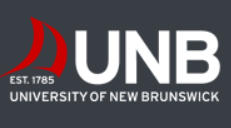
Bachelor in Arts in Anthropology
University of New Brunswick, Saint John


University of New Brunswick, Saint John

Bachelor in Arts in Anthropology
University of New Brunswick, Saint John
This is verified by QS Rankings 2025
Degree
Undergraduate
Duration
48
Course Type
With Co-op
Co-op education gives you real-world experience in a job related to your studies.
INR
11.82L
USD 13902
1st Year Tuition Fees
Opening Soon
Opening Soon
CAD 125